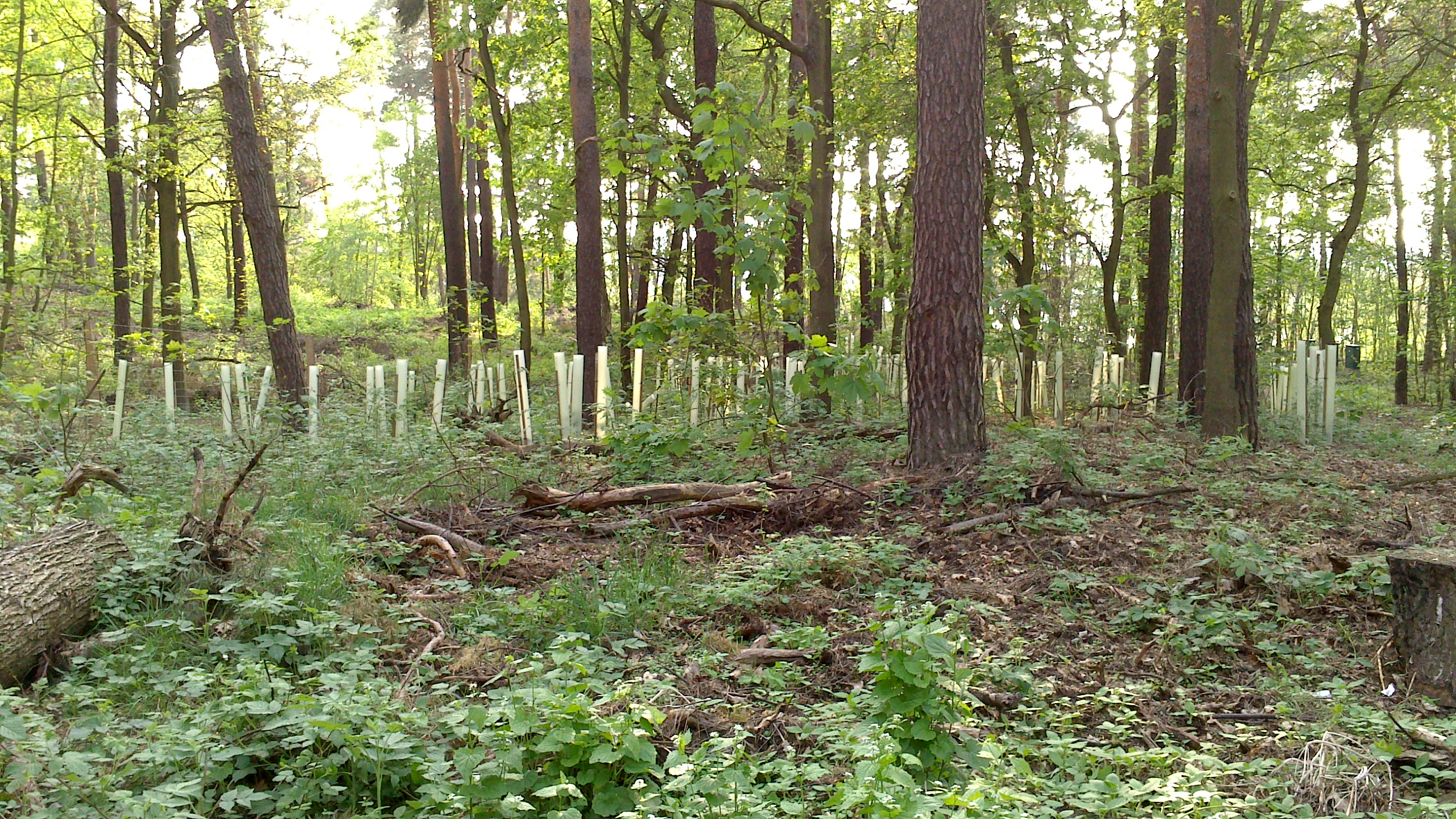The climate’s changing: So should forest management

In Berlin, the capital city of Germany, a comprehensive program of converting pine stands into close-to-nature mixed forest is being implemented, thus making the forest more resilient to future climate change effects, for example. (Photo by IUFRO)
As a joke, people used to say: “If you don’t like the weather, just wait a minute. It’ll change.”
Now they say that about the climate – but they’re a lot more serious.
The rapidly changing climate will precipitate related changes throughout nature. And that includes the world’s forests.
Anticipating climate change impacts on forests and adapting policies and management strategies to mitigate those impacts is critical to maintain the health of those forests and, by extension, of the earth.
“Forest management for adaptation to climate change” is the theme of a session being presented at the 24th IUFRO World Congress in Salt Lake City this fall, by Drs. Rodney Keenan of the University of Melbourne, Australia; Carina Keskitalo of Umeå University, Sweden; Kalame Fobissie of the World Wildlife Fund Central Africa, Cameroon; and Guangyu Wang of the University of British Columbia, Canada.
They anticipate that future management plans will have to consider a wider range of possibilities – factoring in such things as increased risk of invasive species; pest outbreaks; fire; storms and other disturbances; matching tree species and populations to changed and changing climates; and planting multipurpose trees (timber, foods, fuel, medicines, etc.) to mitigate the effect on forest-dependent communities, to name just a few.
Capacity building and raising awareness are also vital to ensure that decision makers and forest managers will understand the science and concept of climate change and the impact it will have on forest ecosystems. Training, learning from others’ best practices (several of which, from different parts of the world, will be discussed during this session) and better understanding how management practices can enhance adaptation and mitigation are key, they say.
Looking at the uncertainty of future conditions, the organizers suggest the traditional model where a researcher takes a problem, goes away, does experiments and comes back to the manager with “the answer” won’t work. By the time the researcher has a clear answer, they say, the conditions may be different.
Interactions among policy makers, forest managers, researchers and the community will have to become closer and more intertwined. Rather than operating in relatively independent silos, ongoing relationships and continuing, regular dialogue about the changing nature of conditions, how different values are being affected and what the management actions and alternatives might be, should become the norm.
From their session they hope to engender a discussion on the different approaches being adopted in different forest types in different parts of the world; the different governance systems; the scientific approaches, ecological options, tools and adaptation approaches; and to find out what is, and what is not, working.
And, they add, underlying any successful adaptation strategies anywhere in the world is the political will to make it happen. That means funding the research and planning, and acting to ensure the implementation of adaptation initiatives.
One of the main challenges, the session organizers say, is to become more proactive – moving from a “let’s deal with this when the time comes” mentality to one that says: “This is happening. This is real. Let’s get to work on it.
Also visit IUFRO Working Party 4.04.08 – Adaptation to climate change for more information.
Congress early bird deadline extended to May 7!
See you at the IUFRO 2014 World Congress!
http://iufro2014.com/
Follow IUFRO 2014 on Twitter! Join IUFRO 2014 on Facebook!
———————————————————–
Related Links
IUFRO Working Party 4.04.08 – Adaptation to climate change: http://www.iufro.org/science/divisions/division-4/40000/40400/40408/
IUFRO Spotlight main page, http://www.iufro.org/media/iufro-spotlights/
———————————————————–
IUFRO Spotlight is an initiative of the International Union of Forest Research Organizations. Its aim is to introduce, in a timely fashion, significant findings in forest research from IUFRO officeholders and member organizations to a worldwide network of decision makers, policy makers and researchers.
IUFRO Spotlight issues up to October 2014 will primarily focus on the IUFRO World Congress that will take place on 5-11 October 2014 in Salt Lake City, Utah, USA. The topics of individual Congress sessions will be highlighted in order to draw attention to the wide variety of themes that will be addressed at the Congress and their importance on a regional and global scale. Find the IUFRO 2014 World Congress Scientific Program at: http://iufro2014.com/scientific-program/overview/

Posted by forestry consultants pa on
It’s scary how quickly our climate is changing! I remember April afternoons spent in my shorts, now it seems I’m still shoveling snow off my car. I’m glad you posted this article to bring attention to this issue. Great job!